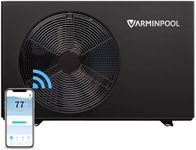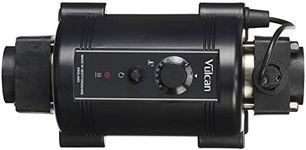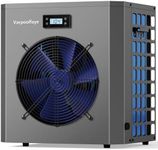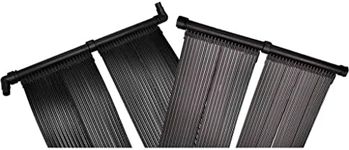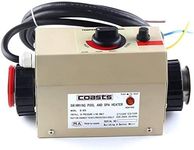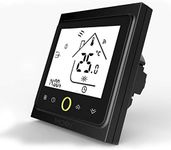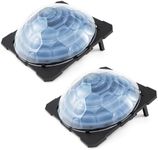Buying Guide for the Best Pool Heaters
Choosing the right pool heater can significantly enhance your swimming experience by extending the swimming season and ensuring comfortable water temperatures. When selecting a pool heater, it's important to consider various factors such as the size of your pool, your climate, and your heating preferences. Understanding the key specifications will help you make an informed decision that best suits your needs.Heater TypeThere are three main types of pool heaters: gas heaters, electric heat pumps, and solar heaters. Gas heaters are known for their ability to quickly heat the pool water, making them ideal for those who want on-demand heating. Electric heat pumps are energy-efficient and work well in moderate climates, as they extract heat from the air. Solar heaters are environmentally friendly and cost-effective in the long run, but they depend on sunny weather. Choose the type that aligns with your heating needs and local climate conditions.
Heating Capacity (BTUs)Heating capacity, measured in British Thermal Units (BTUs), indicates how much heat the heater can produce. A higher BTU rating means the heater can warm the pool faster. For small pools or spas, a heater with 100,000 to 200,000 BTUs may suffice. Medium-sized pools typically require 200,000 to 300,000 BTUs, while large pools may need 300,000 BTUs or more. Consider the size of your pool and how quickly you want it to heat up when selecting the appropriate BTU rating.
Energy EfficiencyEnergy efficiency is crucial for reducing operating costs and environmental impact. Look for heaters with high efficiency ratings, often indicated by a percentage. Gas heaters typically have efficiency ratings between 80-90%, while electric heat pumps can exceed 90%. Solar heaters are the most efficient as they use renewable energy. If you prioritize lower energy bills and a smaller carbon footprint, opt for a heater with a higher efficiency rating.
Climate SuitabilityThe climate in your area plays a significant role in determining the best pool heater for you. Gas heaters perform well in any climate, including colder regions. Electric heat pumps are most effective in moderate to warm climates, as they rely on ambient air temperature. Solar heaters are best suited for sunny regions with long swimming seasons. Assess your local weather patterns to choose a heater that will perform optimally in your environment.
Installation and MaintenanceConsider the ease of installation and ongoing maintenance requirements of the pool heater. Gas heaters often require professional installation and regular maintenance to ensure safe operation. Electric heat pumps are relatively easy to install and maintain, but they may need occasional servicing. Solar heaters typically have low maintenance needs but require sufficient roof or ground space for the panels. Choose a heater that fits your willingness and ability to manage installation and upkeep.
Cost of OperationThe cost of operating a pool heater can vary significantly based on the type of heater and local energy prices. Gas heaters generally have higher operating costs due to fuel consumption. Electric heat pumps are more cost-effective, especially in areas with lower electricity rates. Solar heaters have minimal operating costs once installed, as they rely on free solar energy. Consider your budget for ongoing expenses when selecting a pool heater.



